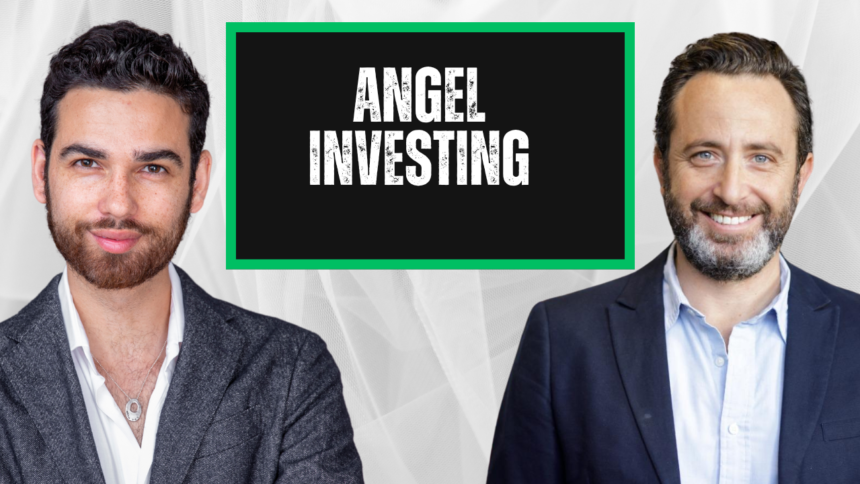On today’s episode of Startups On Demand, I am joined by Elad Kushnir, an active angel investor, board member, and advisor to several startups and scale-ups, public companies, and venture capital funds. Today, we talk about his life as an angel investor, the psychology of managing your own money vs. other people’s money, and the art of investing full-time.
Omri: Here we go, Mr. Elad Kushnir, we’re finally meeting. To kick things off, can you tell a little bit about yourself and where you’re from?
Elad: I’m first and foremost an Israeli despite being somewhat of a mutt because I’ve spent a lot of my life outside of Israel. My first years were in Africa, in Nairobi, Kenya until the age of 6. Then in LA until age 14. I did my high school here and my military service, moved back to New York for all my 20s. I spent another decade in New York City. I was a classic offline guy in the early 2000s, riding the great real estate wave of subprime crash, so I had good timing. In real estate, I used to acquire single-family homes, renovate them, and flip them. I was a classic flipper. It was actually great timing and great business, no matter what we bought, the value went up every 3 months so we weren’t smart but we were lucky in terms of timing. It is hard to make a mistake when markets go up, and if you come in early enough on a trend like that, then you just ride away. yes and also yeah and also it.
Omri: You are doing Angel Investing full-time right now. Give us some background on how you got to this point where you’re able to do Angel Investing full-time and then just talk a little bit about that process and what it looks like.
Elad: At some point in 2009, I joined the mobile industry and found myself opening one of Israel’s first software development homes or houses for mobile apps. Back then, it was a rarity. I think there were only one or two companies that were doing that, but we were service providers, so we went to the media companies, the local news agencies, but we weren’t really service providers at heart – we were more of product entrepreneurs. Our startup was born out of that software development house which was essentially one of the world’s first marketing automation firms with push notifications at the front. We had not a great product but we had great timing again, and we came very early on in the market and the need was there that eventually sold. We had a really nice quick exit. We’ll call it an early-style Israeli exit – 3 years. We didn’t have many investors so we were very happy – me and my partner and Itai Levy, who’s probably one of the best entrepreneurs I’ve ever met. Then, I found myself having Playtika as one of my customers. I found myself joining Playtika – it’s a long story that we won’t get into today, but my friend Raz Friedman, who was a CPO at Playtika for many years, pulled me in. I was the SVP for Business Development and the Head of M&A. So I joined post the first exit, Caesars had already acquired the business. We were a few hundred people. The business grew immensely quickly. It was my first kind of employment in life, until then I was always an entrepreneur. I saw from the inside a hyper-growth business that blew my mind, and the honest reality was I thought I would come for like a year or two and learn, and I found myself staying for four years. It was a crazy uphill marathon. I worked with an amazing team of professionals.
After Playtika, I went to the beach for three months and spent a lot of the time with the kids and then what happened was, I was in many ways kind of a foreign minister for Playtika because I was head of Business Dev, I was an outward facing role. I got a lot of deals that came to me after Playtika. There was also great timing because what happened in the Israeli games industry back then is that the industry started growing organically bottom up. Meaning a lot of startups were being born and a lot of the time, the new startup guys who were the founders, someone would point them at me. I found myself wanting to invest in this and wanting to invest in that, and at some point, it just took on a life of its own.
Omri: Do you also invest in publicly traded companies and the stock market?
Elad: I do but I do throw it on the side. I don’t consider it the same business. I don’t look at these things the same way. When it comes to the publicly traded side, I’m an extremely conservative investor. I do ETFs and S&P, I diversify a bit. That’s the money I made and I want to never lose. On the startup side, I think of it as the higher-risk funds and it’s also where I have more fun.
Omri: How do you handle the risks of angel investing? Is it a gamble?
Elad: I don’t feel like it’s a gamble. I have a portfolio which I’m very proud of and it’s doing very well. It’s high risk but I wouldn’t call it a gamble. A gamble is a luck-based mechanism. This isn’t purely luck. Luck is important and timing is important but it’s much more than that. I think there’s a way to identify ventures that have more of a chance.
Omri: What is your style and how does your day-to-day life look like as a full-time angel investor?
Elad: So first of all, I get deal flow, so I’m lucky enough that I have been able to create a reality where my deal flow is organic. It’s inbound. I don’t think I’ve ever done any outbound at all. I think that’s a benefit to have as an angel investor. I think that allows me to focus on cherry-picking. Also, I think the whole deal flow question is not just about quantity but about quality, so I’ve been lucky that somehow the world funnels to me a relatively high-quality deal flow. Of course 99% of it I say no to, much like any venture capital kind of investor style, but I get to see quite a lot of amazing stuff and I have been able to create a reality where it comes quite early to me in the life cycle business. I usually get to talk to founders before they’ve raised any money or before they have real traction. That’s kind of the sweet spot. I don’t invest in ideas 9 out of 10 times. I have in a few cases – all my rules are meant to be broken – but I try to invest in something where I see a little bit of user data that I can extrapolate in my head.







